2020’s Most Influential Leaders Series: The Power of Speaking Up
As we continue our battle against the Coronavirus COVID-19 pandemic, we are excited to launch our new series on the Most Influential Leaders of 2020.
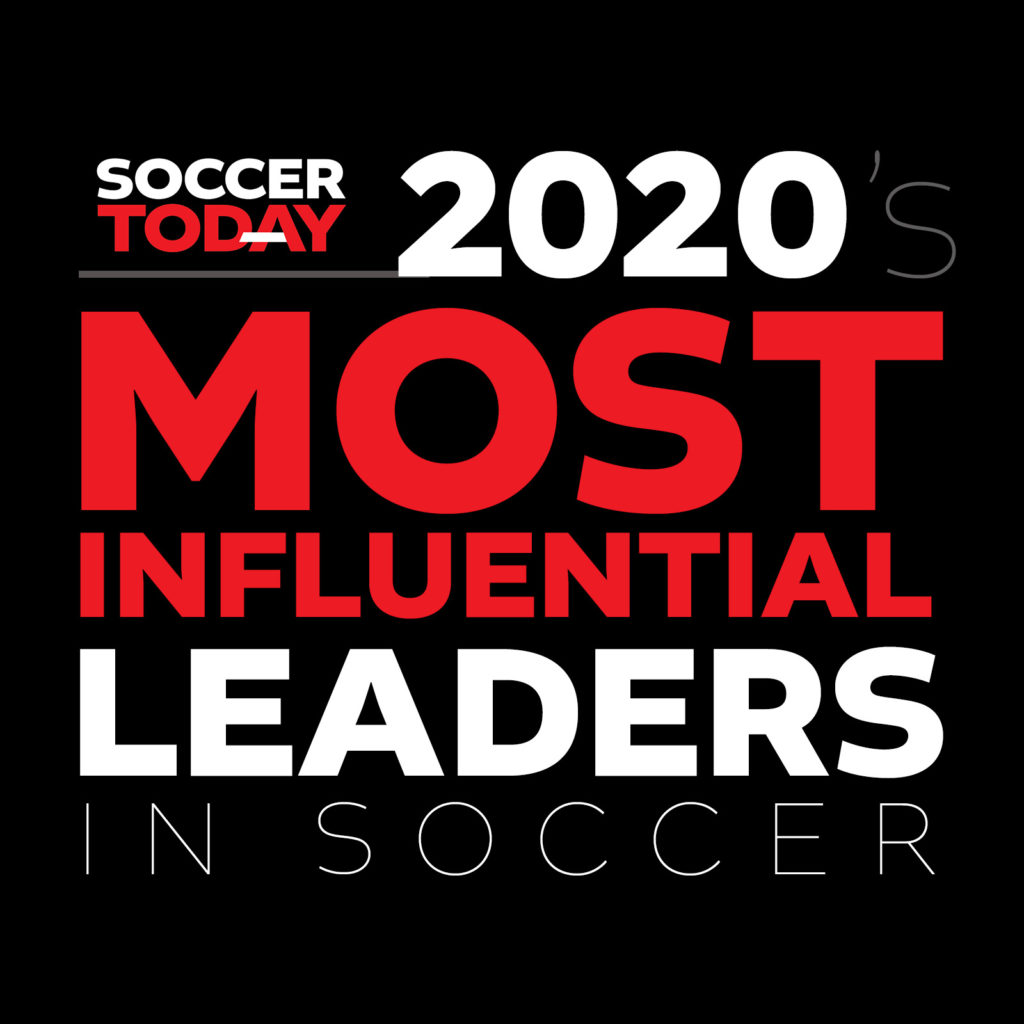
America is in turmoil. Rightfully so — after decades of racism, we are hoping to see change as the fight against racism is in the spotlight. As soccer is the world’s most beautiful sport, it seems only right that soccer players of all ages should stand up against racism. Players all across our country and in many different leagues are making a difference.
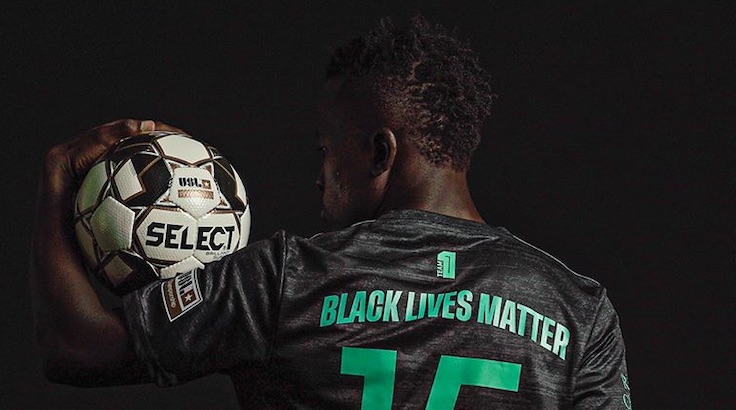
The pros at the #MLSisBACK tournament are visibly taking a stand — or more literally, a knee for justice and equality. Expressing solidarity, nearly 200 players took a knee before the tournament opener on July 8, and this anti-racism effort has continued throughout the tournament.
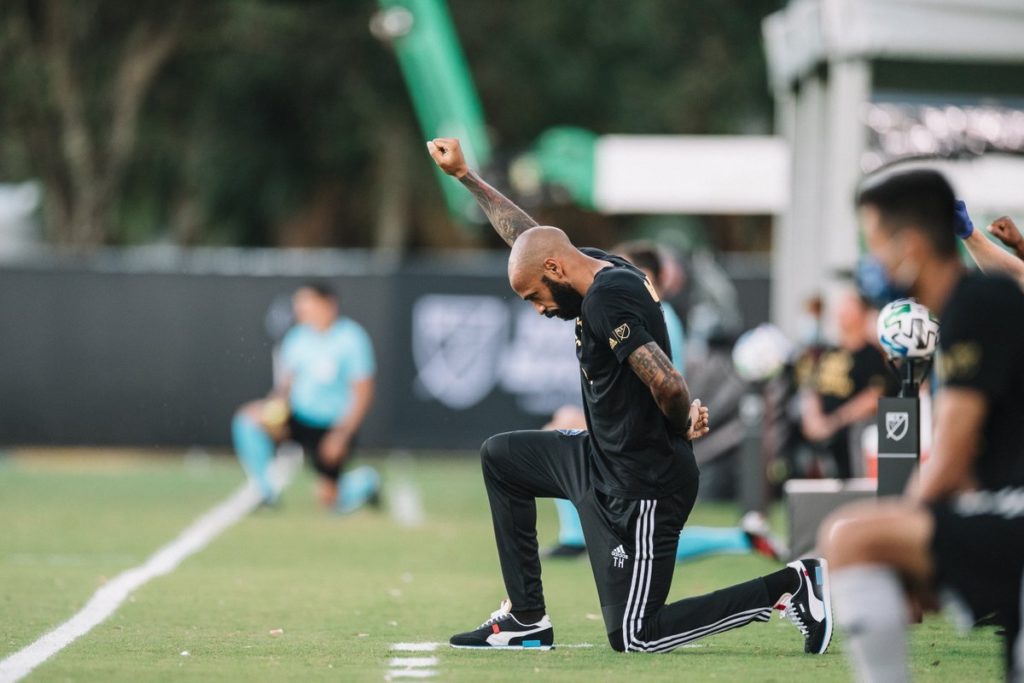
While the MLS’ support is highly visible in the media, when we look at highly influential leaders of 2020, we always need to think of those behind the scenes who drive the important issues forward.
One of the most influential leaders of 2020 is Lynn Berling-Manuel. As CEO of United Soccer Coaches since 2015, Berling-Manuel is the first female to lead the organization in its 79-year history. An effortless trendsetter with strong opinions and great negotiating skills, Berling-Manual has pioneered a path few have traveled. A woman who shatters the glass ceiling with minimal fanfare, Berling Manuel’s influence has always pushed to improve the game.
Lynn Berling Manuel is a longtime advocate of equal rights in the fight against racism. We wanted her opinion on the ugly truth on racism in America.
SoccerToday’s Interview with Lynn Berling-Manuel
Diane Scavuzzo: Racism in America — particularly in American soccer — have you witnessed it the entire time you’ve been involved in the soccer industry? Is racism any less prevalent today than years ago?
Lynn Berling-Manual: Racism is part of our country and goes back 400+ years. I think inherently racism is part of every entity in America and has long been. Is it better or is it worse? I think that’s a scale that’s really hard to judge. I think there is a greater spotlight on racism in America than ever before.
I think soccer has to really look at itself through a magnifying glass.
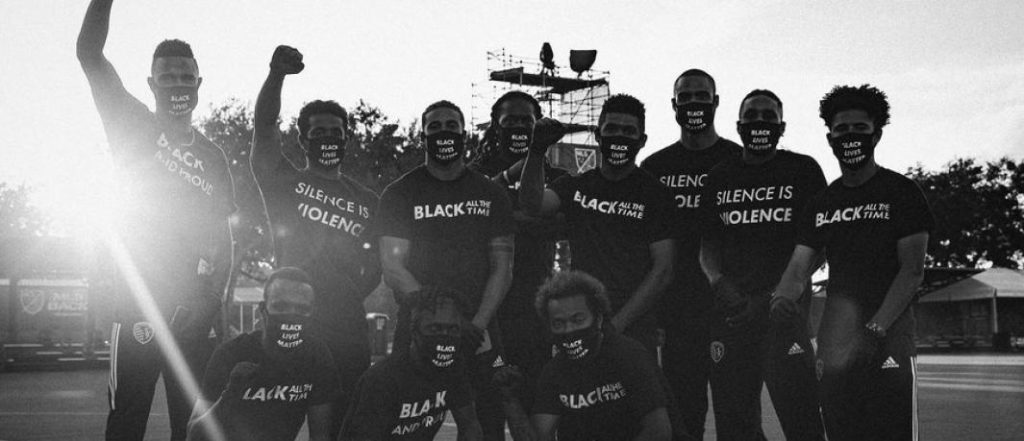
Diane Scavuzzo: Will this spotlight help?
Lynn Berling-Manual: We’ve cast a blind eye a lot of the time. That’s simply not being allowed anymore.
Right now, people are dealing with racism in both a more intellectual and emotional way than I’ve ever seen. I think we’re having the difficult conversations we should’ve always had.
Diane Scavuzzo: In Europe, we’ve seen professional games with fans hurling racial insults at players. Sometimes clubs have failed to protect their players. Is that something you believe a club should stop?
Lynn Berling-Manual: Yes. Soccer clubs should have a zero-tolerance policy on racism, absolutely.
As a society, we have struggled with racism — always.
All sports are a reflection of their societies. The reality is, at least the unconscious bias is part of all of us in some ways.
A lot of times there’s been a feeling that racism has gone away. That’s wrong.
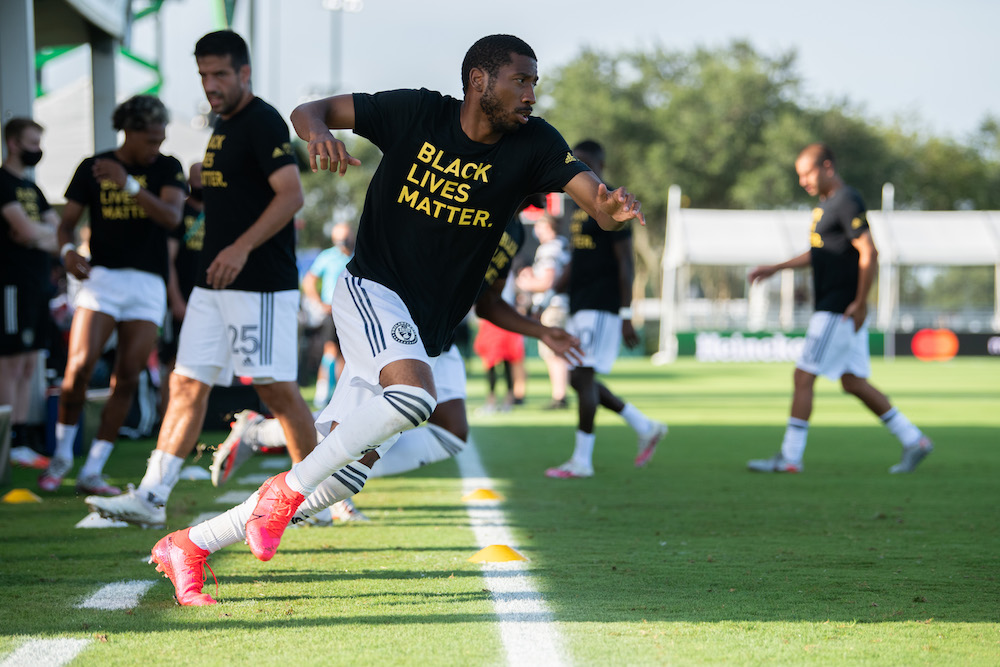
This doesn’t mean racism is gone. That just means that it’s buried.
In reality, racism has just gone underground or become more polite.
I’m not sure there are easy solutions of any kind, but at least we can say, “We’re not hiding it any longer. We’re going to tackle it directly. We’re going to talk about it, and we will do something about it.”
Racism is not something that most fans want to align with. And, racism is not something that sponsors want to align with either. Soccer clubs cannot tolerate racism from fans or from within their organizations.
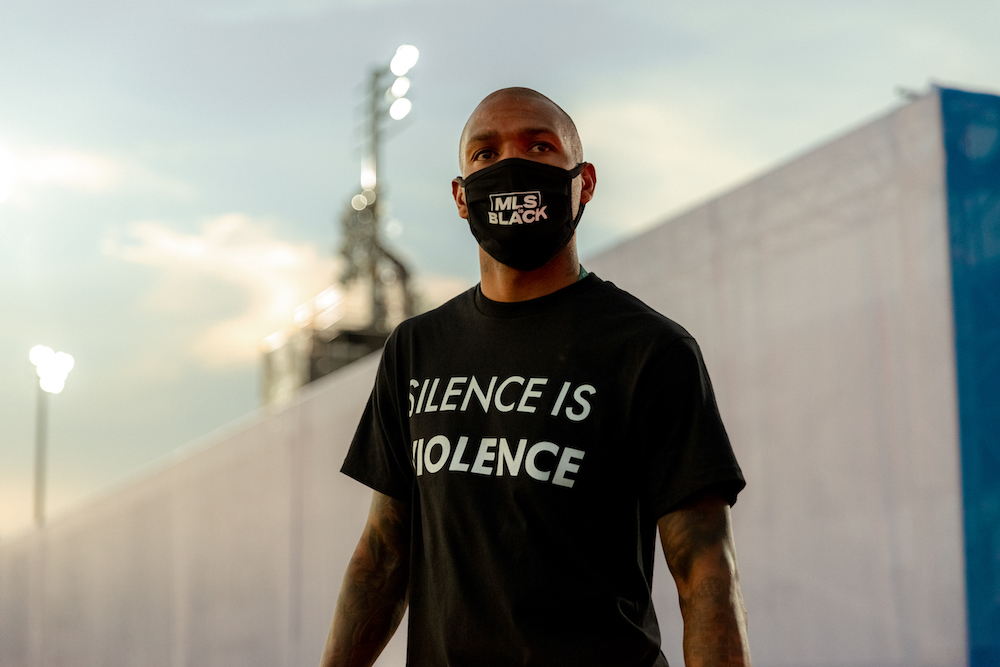
Diane Scavuzzo: Where did you grow up? Where are you from?
Lynn Berling-Manual: I am from Northern California, from the Berkeley area.
Diane Scavuzzo: Many people consider Berkeley to be a liberal area, a part of the USA that is less racist than others. Did you experience racism first hand when you growing up?
Lynn Berling-Manual: Berkeley is a very diverse area and race has always been a very significant part of the conversation, at least in my lifetime. I’m the oldest of six kids and come from an extremely white, waspy middle-class family. However, through marriage and family, we have today an extraordinarily diverse family.
I think that our nieces and nephews represent the future of this country. Today’s modern kids are growing up in a much more diverse society than ever before. And, young people today are looking at the world differently.
Diane Scavuzzo: My 18-year-old son firmly believes that our generation has perpetuated racism. He feels his generation is far less racist. Do you think that’s true?
Lynn Berling-Manual: I do in many ways. I think his generation is much more aware of the world than perhaps any earlier group …
Diane Scavuzzo: Because of social media or why are they more aware?
Lynn Berling-Manual: I definitely think the media’s part of it. Whether it’s racism, or global warming, or other major issues, kids see the world through a broader lens and are very, very clued in. I’m surprised, actually, and pleased at that.
Today’s generation is looking at their elders and saying, “You didn’t take this as far as it needed to go.”
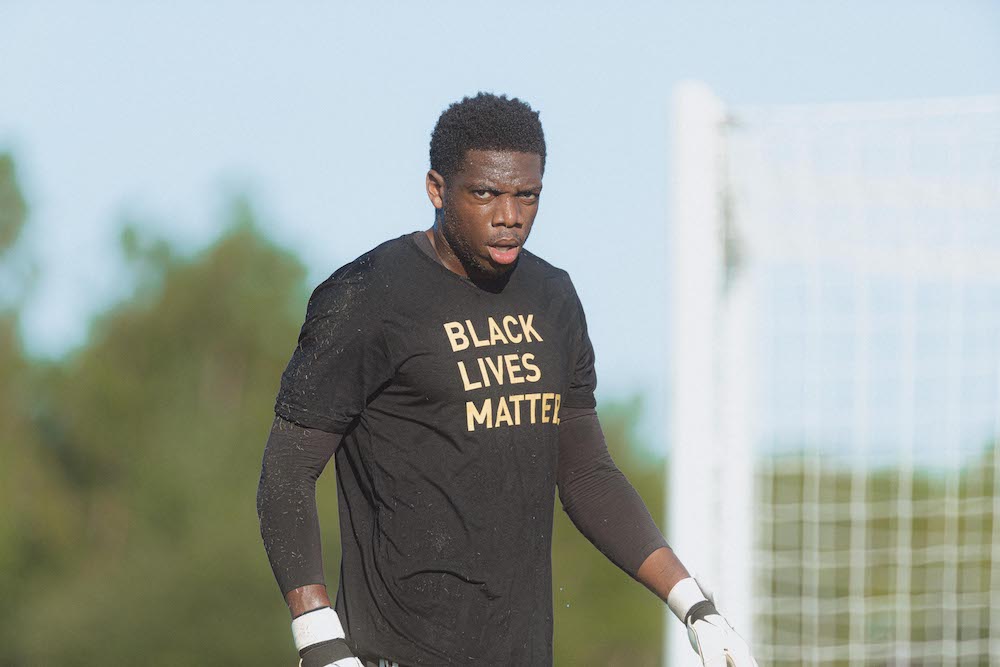
Diane Scavuzzo: It is horrifying that racism is still embedded in our American culture. I wonder if perhaps racism is even worse.
Lynn Berling-Manual: The issue of worse is kind of interesting to me. I don’t know that this is for print or not, but …
You know that I’m married to a Black man.
My father-in-law brought his family from Texas to California and he used to tell me, “In Texas, at least I knew who the racists were. It was all very visible.”
The divide we see in our country today, in my opinion, is not new. It’s simply revealed.
It’s an ugly truth.
From my perspective, and perhaps from whichever side of that divide you are on, I think there’s a certain amount of ugly truth to it.
I don’t think we’re more racist today.
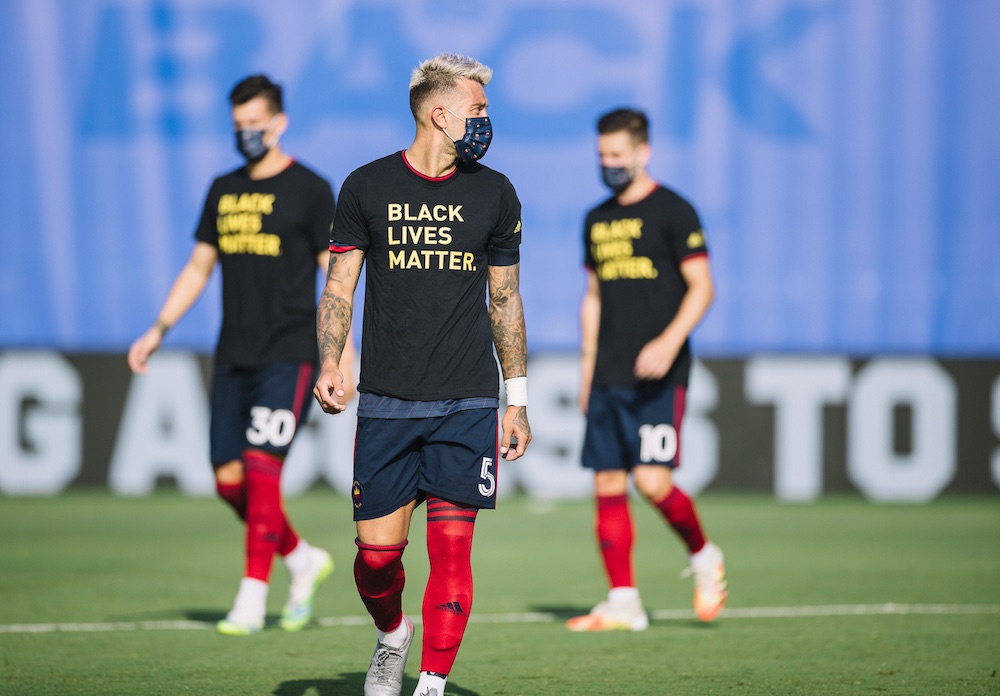
Diane Scavuzzo: Do you think the Coronavirus COVID-19 pandemic has influenced this scenario?
Lynn Berling-Manual: Absolutely. It didn’t cause it. It’s exacerbated it. COVID is disproportionately affecting people of color, people who are frontline workers, and people who are lower socioeconomic.
Diane Scavuzzo: As a former journalist, and as the person who ran Soccer America, do you believe that professional soccer was more difficult for a black person to break into years ago than it is today?
Lynn Berling-Manual: I think soccer’s always been difficult to break into if you were lower-income, it’s heavily socioeconomic. But that has too often aligned. I think that’s the bigger truth here.

Click here for information on the United Soccer Coaches’ Advocacy Council, the Anti-Racism Resource Page and the Black Soccer Coaches Advocacy Group
Diane Scavuzzo: Do you see racism existing in your organization?
Lynn Berling-Manual: First, I think we, as an association have done a better job of addressing diversity than most soccer organizations in America, and United Soccer Coaches has done this for a longer period of time — I’m incredibly proud of that. This was long before I was on board as CEO. But we also have to do better.
I’ve had to look harshly at what we do, and what we don’t do.
We want to make sure that our images, our stories, our topics represent the diversity of our association.
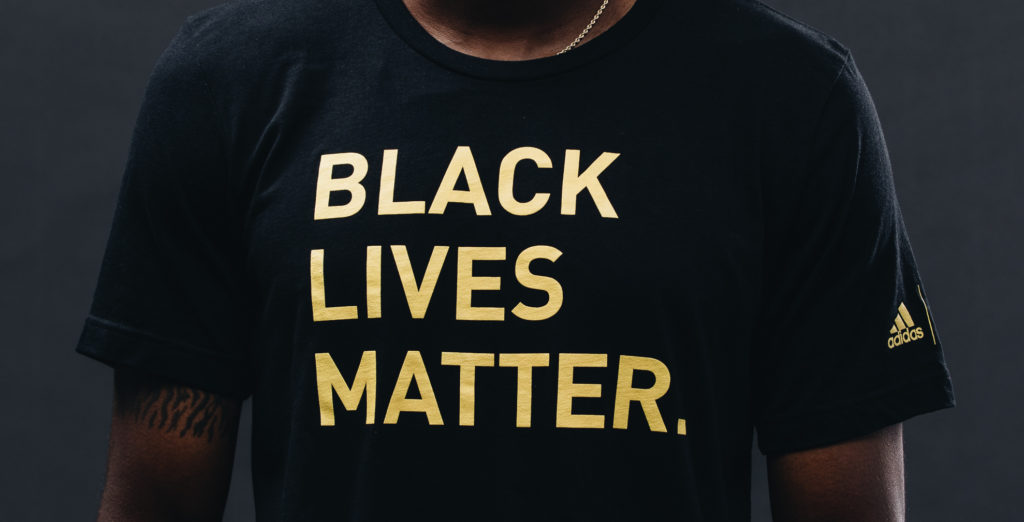
I’ve certainly got critics who don’t feel we’ve done enough — and they are not wrong.
I totally get that there’s still a long way to go. We have to do this because it’s the right thing.
Taking advantage of the diversity of our sport and our country is a huge advantage across the board. But, there is a lot of history and culture that are often working against you, and making things harder than they need to be.
Diane Scavuzzo: Do you not want the fact you’re married to a black person be in the article?
Lynn Berling-Manual: No, I don’t care. I think the point simply is this — would it normally come up in conversations that your husband was white? Would that ever come up in conversations?
Diane Scavuzzo: No.
Lynn Berling-Manual: In much of America today, and certainly in our lives, a racially mixed couple is just not a big deal. We’ve been married for 40 years and it’s part of who we are.
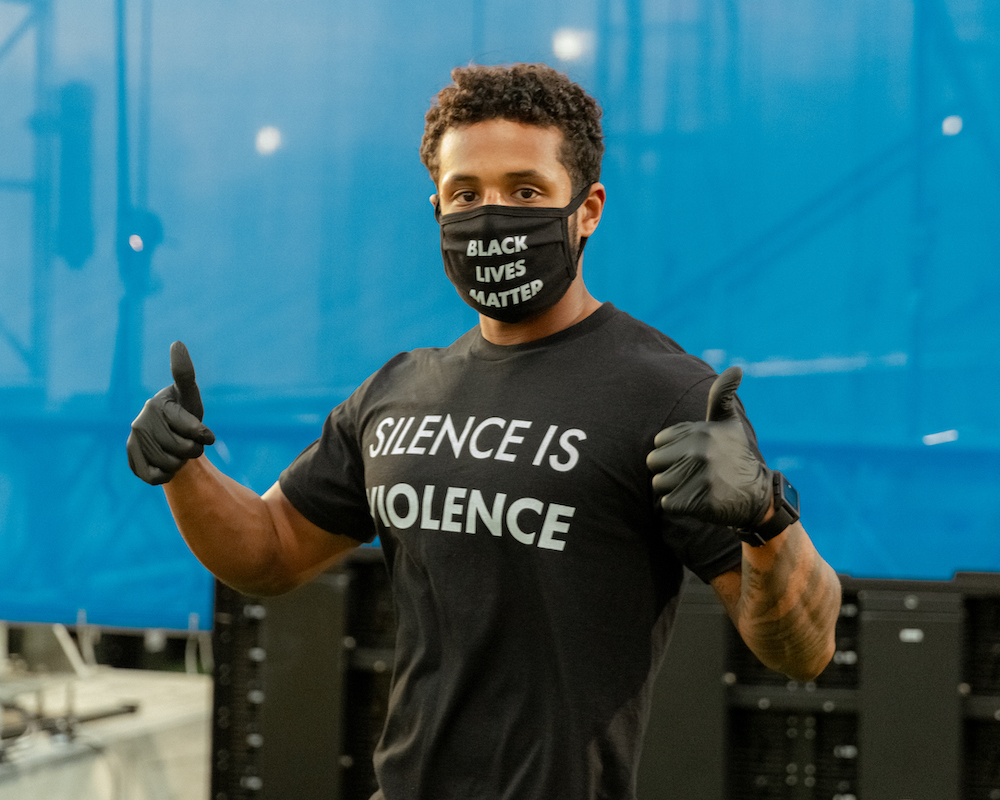
Diane Scavuzzo: On a parting note, what’re your thoughts on the t-shirts being worn by MLS players with the slogan “Silence is violence” — I think it is a great message. Systemic racism thrives in simple conversations.
Lynn Berling-Manual: I do too. If there’s one thing white people can do, it is to speak up. It is not always comfortable to be the one who speaks up. The first thing you usually hear is, “Can’t you take a joke? You have no sense of humor. That’s the problem with you people.”
The reality is, subtle racism is the hardest of all.
I go back to my father-in-law’s story. Sometimes it’s easier to have somebody hate you to your face than be negative behind closed doors, or in their mind but not in their mouth. At least you know exactly what you’re dealing with.
Diane Scavuzzo: Are you somebody who will speak up?
Lynn Berling-Manual: As an individual, absolutely. And, as an organization, absolutely. It is what we all should do.
Note: Before joining United Soccer Coaches, Berling-Manuel was the Chief Marketing Officer of AYSO for seven years. Her first job in soccer was Soccer America, the soccer news site launched as a magazine by her father, Clay Berling, in 1971. Berling-Manuel worked at Soccer America for over twenty years, initially as Managing Editor, then Editor-in-chief and eventually CEO and Publisher.





